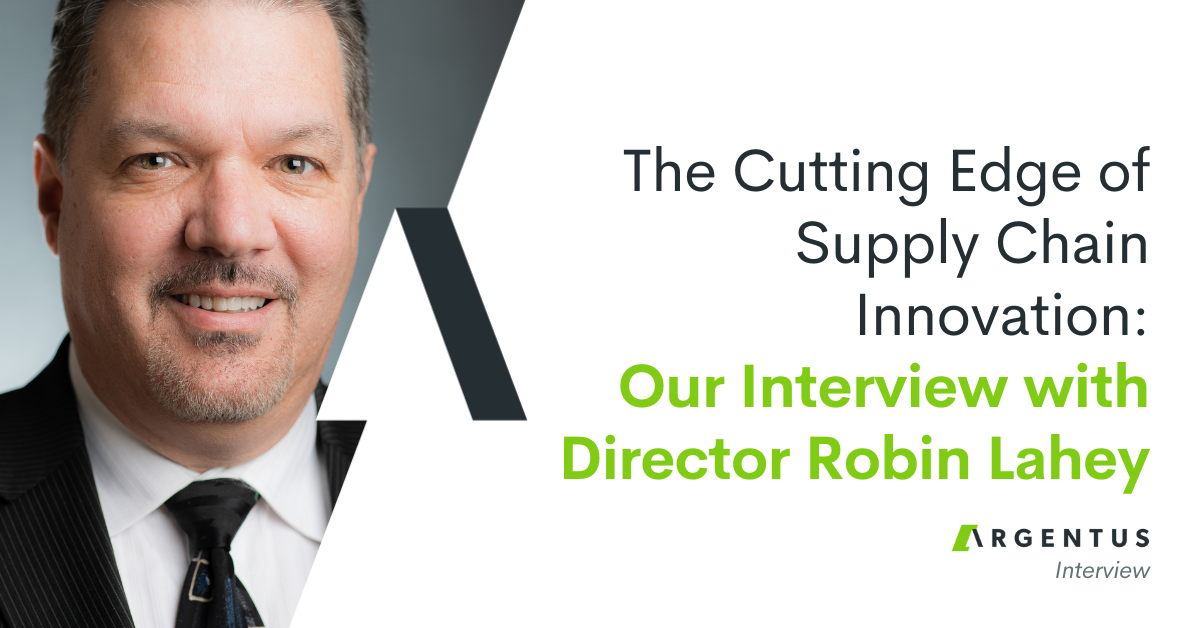
T oday, we’re bringing your our follow-up to our interview with Supply Chain guru and advisor to Chief Supply Chain Officers Michael Massetti. In the previous instalment, Michael gave us the lowdown on big picture trends he’s witnessing in Supply Chain and the market for talent in the field, as well as a discussion of Chief Supply Chain Officers and how titles might actually mean more than they seem.
Michael Massetti is Executive Partner in Supply Chain at Gartner, a leading technology research company. He has a background in the world of technology, having led Supply Chains at some of the world’s largest tech companies. He’s also a great advocate for the field, providing thought-provoking and engaging content about Supply Chain on LinkedIn Publisher.
In this follow-up, we talk about the role of automation in the Supply Chain. We talk about whether Supply Chain needs an image makeover, as well as challenges that Supply Chains face at high-growth, mature, and turnaround organizations, respectively.
 In your work with Gartner, you act as a Supply Chain advisor to executives at Fast-growth, mature, and turnaround organizations. What different Supply Chain challenges do you think each of these types of companies encounter?
In your work with Gartner, you act as a Supply Chain advisor to executives at Fast-growth, mature, and turnaround organizations. What different Supply Chain challenges do you think each of these types of companies encounter?
I’ll address one at a time.
- Mature Supply Chains are being challenged by business dynamics in the world outside of them. Sometimes they have a rather slow response to that change because the people in the organization are used to doing things the same way they’ve always done them. That challenge is a reality for a culture and an organization, if their market is changing. Just look at the PC world in the last ten years. They’ve gone from the only game in town to people questioning whether they’ll actually survive. People are going through that change, and it’s difficult. Why did Michael Dell take his company private? To do what he needed the company to do without worrying about the short term reactions of Wall Street.
- In terms of start ups and high growth companies, the trickiest thing is that as you move from a purely entrepreneurial company to one that’s trying to structure itself and trying to grow, you sometimes miss the recognition that Supply Chain is a critical function. It’s important, as you grow, to move up the Supply Chain maturity curve from different siloed functional groups into an integrated approach. Siloed functions within a Supply Chain don’t achieve the value of a mature function, and people need to think beyond individual functional areas. You might think, “okay, our warehouse is good” without thinking about the end to end. Procurement might have hit their cost savings metrics, but if it meant purchasing more than needed, and that might hurt your warehouse inventories. That’s one of the big challenges that growing companies have – breaking people out of functional siloes, plus the financial need to look at things instead of just in terms of their physical supply chain needs.
- In terms of companies in the middle, we often work with Sales & Operations processes for them. I might be talking to someone who’s done that function for 5 years, but the market is now different. Your process is most likely not tuned or has not kept up to snuff with what’s going on in the business. These companies need a constant refresh of their business processes and the people responsible for them. We spoke about the onslaught of data and the need for people with analytics skills. The S&OP process 3-4 years ago didn’t lean on that as much as it does now. They might be realizing that their processes aren’t keeping up with the tech and the capability that their competitors have. Retailer A is still competing with Retailer B. They have the same stores, but maybe Retailer B is ahead in their digital environment, and A is realizing they aren’t keeping up to speed with their competitors’ best in class capabilities – so, they reached out to Gartner for guidance.
One thing that comes through in your LinkedIn publisher articles is your passion for the field. What do you love about Supply Chain?
I started out this conversation saying that if I look back at my career, I don’t know how I could have planned to get the job I have today. What I love about Supply Chain is that it’s a great combination of three things. I get involved with people, I get involved with business, and I get involved with the technology. All three of those things are interesting and exciting to me. Today, I don’t deal with the product as much as a service provider, but I have electronics companies, I have consumer goods companies, and I have manufacturing companies that I work with. I love getting to understand and play with all of those areas. The diversity is exciting. I really believe that a Supply Chain is a critical success factor for any company. If it’s a company that ships hard good especially, it doesn’t exist without a Supply Chain. There’s a lot of fun – and I try to convey that with my articles. It’s an interesting profession with breadth and depth that’s critical to the success of companies.
Supply Chain seems like an often misunderstood or under-acknowledged area. It often only seems to make the news when Supply Chain failures happen. Do you think this is an issue, and if so, how do you think the field should go about changing it? Or do you think Supply Chain professionals should just go on being quietly excellent?
That’s interesting. An old classical perspective of Supply Chain is that you want to have it so that nobody knows it exists. Things are coming in, going out, high quality, it’s good – if it’s quiet in the Supply Chain world, everyone can relax. That’s old school. What’s transformed over the last 30 years as Supply Chain has become more defined, is that you have companies like Dell Computer who redefined their business model based on Supply Chain in a way that no one else was doing. Then Amazon came on and said that Supply Chain had to be out front. As companies realize the value that they get from making their business more cost-effective and responsible, Supply Chain has to be front and centre.
Also, we can’t talk like Supply Chain geeks. As much as we like to make jokes about Supply Chain metrics with each other, if we aren’t understood by the outside world and our executives, they won’t know we exist. At Gartner, we actually tell people to communicate in a way that businesses understand. Speak about how you’re driving faster responses to customer requirements, how you’re growing revenue in new segments – use terminology that business leaders understand.
Are there any other issues you’re interested in at the moment that you’d like to share with our readers?
Sure: the plight of workers in a world of automation. One of my upcoming blogs is going to be about a fictional impact of over-automation and robotics. I’m in the process of reading a couple of books, including Rise of the Robots. My whole question is, why are we working so hard to put so many people out of work? Automation, AI, all those things are great. But when you look at technology moving forward, you ask, what is the end goal of automation? You talk about Corporate Social Responsibility, but you need to have support for your workers. We have to keep people employed. If I were to put that conversation in a Supply Chain question I would say this: long term, how are both global companies and countries going to deal with the supply of talent, and the demand for talent, at all levels, as automation and intelligence really starts increasing beyond pure physical productivity to mental productivity as well? At first, a lot of jobs at the clerical or “algorithmic” level will be at risk, and then other jobs, and I’m interested to see how this development plays out.
– – –
Interesting stuff. Thanks again to Michael Massetti for the engaging and thought-provoking interview! If you haven’t done so yet, check out the first part of our interview, as well as Michael’s LinkedIn Publisher posts on a variety of Supply Chain topics. They’re great. ![]()
Have you signed up for Argentus’ Market Watch Newsletter? It only takes a moment. You’ll receive low-volume, high-impact market insights from the top specialty Supply Chain recruiters including: Salary Information, Supply Chain industry trends, Market Intelligence, Personal Branding tips and More!
[mc4wp_form id=”17895″]



0 Comments